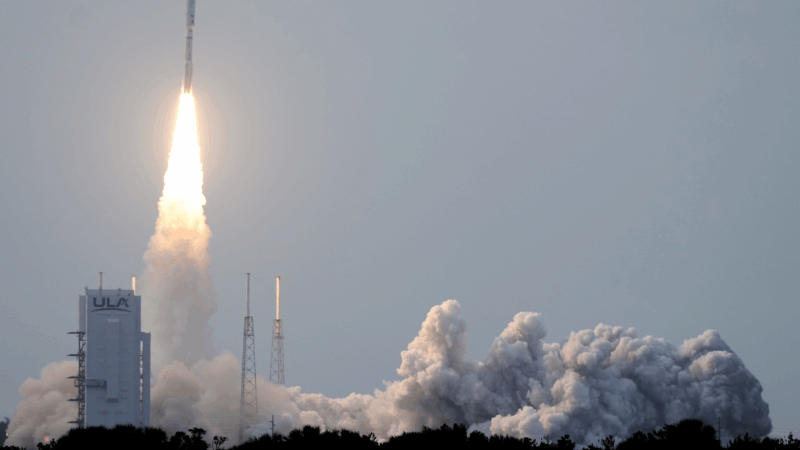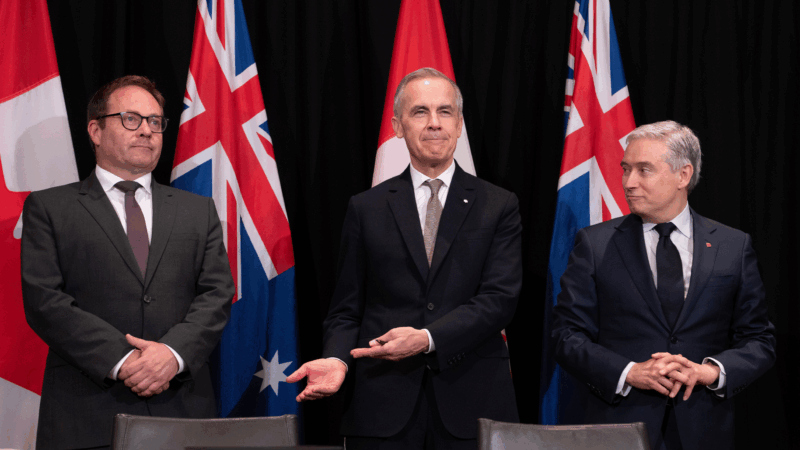Amazon launches its first internet satellites to compete against SpaceX’s Starlinks
CAPE CANAVERAL, Fla. — Amazon’s first batch of internet satellites rocketed into orbit Monday, the latest entry in the mega constellation market currently dominated by SpaceX’s thousands of Starlinks.
The United Launch Alliance’s Atlas V rocket carried up 27 of Amazon’s Project Kuiper satellites, named after the frigid fringes of our solar system beyond Neptune. Once released in orbit, the satellites will eventually reach an altitude of nearly 400 miles (630 kilometers).
Two test satellites were launched in 2023, also by an Atlas V. Project officials said major upgrades were made to the newest version. The latest satellites also are coated with a mirror film designed to scatter reflected sunlight in an attempt to accommodate astronomers.
Stargazers oppose the fast-growing constellations of low-orbiting satellites, arguing they spoil observations. Others fear more satellite collisions.
Founded by Jeff Bezos, who now runs his own rocket company, Blue Origin, Amazon aims to put more than 3,200 of these satellites into orbit to provide fast, affordable broadband service around the globe.
Elon Musk’s SpaceX already has launched more than 8,000 Starlinks since 2019. The company marked its 250th Starlink launch Sunday night. More than 7,000 Starlinks are still in orbit some 300-plus miles (550 kilometers) above Earth.
The European-based OneWeb satellite constellation numbers in the hundreds in an even higher orbit.
Amazon already has purchased dozens of rocket launches from United Launch Alliance and Blue Origin for Project Kuiper, as well as others.
“There are some things you can only learn in flight” despite extensive testing on the ground, said Rajeev Badyal, the project’s vice president.
“No matter how the mission unfolds, this is just the start of our journey,” he said in a statement ahead of the evening liftoff.
The first liftoff attempt earlier this month was nixed by bad weather. It took until now to secure another spot in the launch lineup at Cape Canaveral Space Force Station.
Carney says he backs strikes on Iran ‘with some regret’ as world order frays
Canadian Prime Minister Mark Carney says he supports the strikes on Iran "with some regret" as they represent an extreme example of a rupturing world order.
Iranian civilians are now fleeing the relentless bombing for neighboring Turkey
As the U.S. military broadens its strikes in Iran, traumatized Iranians are reaching the border with Turkey.
A split Senate votes against measure to constrain Trump’s authorities in Iran
Democrats in the Senate were facing an uphill climb Wednesday in their push to restrain President Trump's ability to wage war against Iran.
WATCH: How traffic dried up in the Strait of Hormuz since the Iran war began
The effective closure of the Strait of Hormuz is "about as wrong as things could go" for global oil markets. Iran achieved it not with a naval blockade, but with cheap drones.
As Mississippi waits to spend opioid settlement funds, children and families suffer
Mississippi will receive more than $400M to fight the opioid epidemic. So far, officials haven't directed it toward programs that support addiction recovery.
Alabama’s new state climatologist takes the reins
The controversial John Christy is retiring as Alabama’s state climatologist. Lee Ellenburg now assumes the role and is already making a few changes, including declaring that climate change is real and caused by humans.






